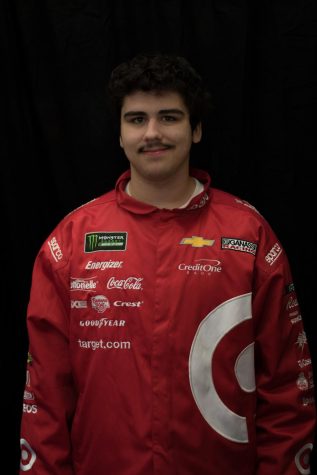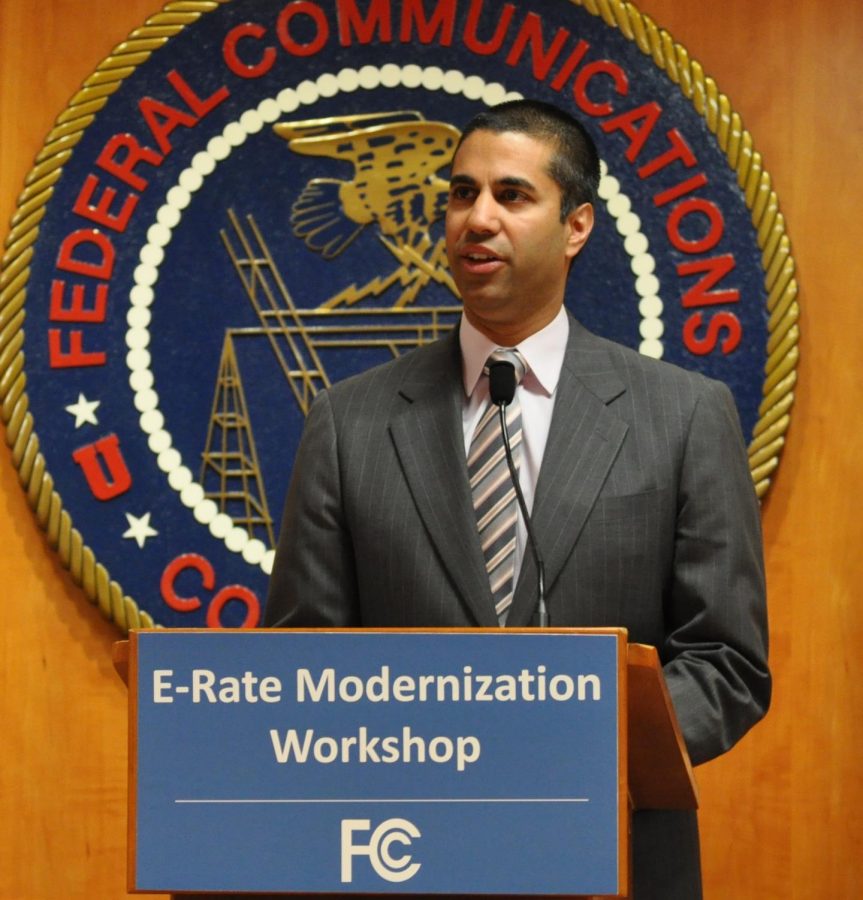What Is Net Neutrality and Why Does the FCC Want to Repeal It?
The FCC will be voting on December 14 to repeal net neutrality rules, and it may very much change the Internet forever.
Net neutrality is the basic rule that all Internet service providers like AT&T, Verizon, and Comcast, have to treat web data equally. This means that they aren’t able to intentionally block, slow down, or charge extra money for any particular websites.
FCC Chairman Ajit Pai, who was appointed to the position by President Donald Trump, announced plans to roll back net neutrality and its Title II classifications and let the Federal Trade Commission protect consumers, giving telecom companies a huge advantage about what they want to offer. This prompted a ton of backlash from Internet users and celebrities nationwide.
“Keep net neutrality,” junior Deegan Martin said.
Another junior, Cameron Cardoza, didn’t think net neutrality was a big deal and initially agreed with the FCC, but after being told the rules will affect every website including Google and YouTube, two sites he likes to browse, he almost immediately changed his mind.
“I think they should be more balanced because Google’s huge,” Cardoza replied. “I’m now thinking about it; Google’s a giant!”
Gary Diaz, who teaches personal finance and computer applications classes with computers, agrees that net neutrality should still exist.
“If it’s working right now, and it’s working right now because they didn’t have this prior, and it created a problem so they put this into effect and it seems to be working, then why would we want to go back?” he asked.
Ajit Pai wants to scrap the rules because the Federal Trade Commission can protect consumers from broadband providers, but a pending court case that involves AT&T may not have the FTC regulate authority with ISPs.
“Every Internet group needs to come together like you successfully did three years ago… gamers, YouTube celebrities, Instagram models, Tom from MySpace, if you’re still alive. We need all of you,” John Oliver said on his show Last Week Tonight.
Big and small websites organized one of the biggest online protests ever July 12, with tens and millions of people delivering comments to the FCC and calling and sending emails to their local Congress members.
Ajit Pai was formerly a top lawyer at Verizon from 2001 to 2003 before being appointed to the FCC. Because of this information, thousands of protesters marched to their nearest Verizon stores December 7 to demand Congress to stop the FCC from destroying their Internet.
Despite all possible attempts to persuade the FCC to delay the vote to a later date, Pai’s office released a statement saying that the vote will still proceed on December 14, and that “supporters of heavy-handed Internet regulations are becoming more desperate by the day.” Republican commissioners are expected to pass the legislature with a 3-2 party-line vote.
The vote isn’t exempt from other related controversies. The FCC refused to join an investigation surrounding fraudulent comments that were posted on its website using the names of real people, most of them saying they support repealing net neutrality.
FCC General Counsel Thomas Johnson wrote in a letter to Eric Schneiderman, the Attorney General of New York who organized the investigation, “Revealing the IP addresses of public commenters would also raise significant personal privacy concerns.”

Kevin Valdez is a student at Ripon High School who is looking forward to something memorable during his senior year. This is his second year as a reporter...

